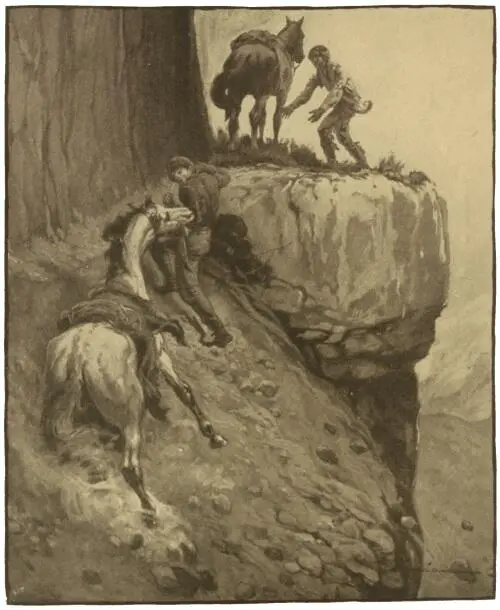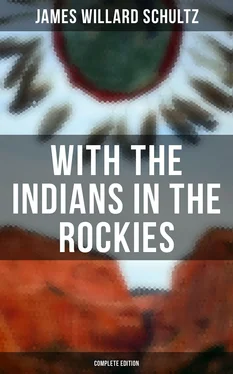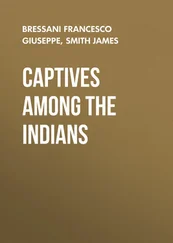James Willard Schultz
With the Indians in the Rockies
(Complete Edition)
Life & Adventures of Trapper and Trader Thomas Fox
Published by

Books
- Advanced Digital Solutions & High-Quality eBook Formatting -
musaicumbooks@okpublishing.info
2018 OK Publishing
ISBN 978-80-272-4529-1
Preface Preface Table of Contents When in the seventies I turned my back on civilization and joined the trappers and traders of the Northwest, Thomas Fox became my friend. We were together in the Indian camps and trading posts often for months at a time; he loved to recount his adventures in still earlier days, and thus it was that I learned the facts of his life. The stories that he told by the evening camp-fire and before the comfortable fireplaces of our various posts, on long winter days, were impressed upon my memory, but to make sure of them I frequently took notes of the more important points. As time passed, I realized more and more how unusual and interesting his adventures were, and I urged him to write an account of them. He began with enthusiasm, but soon tired of the unaccustomed work. Later, however, after the buffalo had been exterminated and we were settled on a cattle-ranch, where the life was of a deadly monotony compared with that which we had led, I induced him to take up the narrative once more. Some parts of it he wrote with infinite detail; other parts consisted only of dates and a few sentences. He was destined never to finish the task. An old bullet wound in his lung had always kept him in poor health, and when, in the winter of 1885, he contracted pneumonia, the end was quick. His last request was that I would put his notes in shape for publication. This I have done to the best of my ability in my own old age; how well I have done it is for the reader to judge. Brave, honest old Ah-ta-to-yi (The Fox), as the Blackfeet and frontiers-men loved to call him! We buried him on a high bluff overlooking the valley of the Two Medicine River, and close up to the foothills of the Rockies, the "backbone-of-the-world" that he loved so well. After we had filled in the grave and the others had gone, Pitamakan and I sat by the new-made mound until the setting sun and the increasing cold warned us also to descend into the valley. The old chief was crying as we mounted our horses. "Although of white skin," he faltered, "the man who lies there was my brother. I doubt not that I shall soon meet him in the Sand-hills." Ah-pun-i Lodge, February, 1912.
Chapter I
Chapter II
Chapter III
Chapter IV
Chapter V
Chapter VI
Chapter VII
Chapter VIII
Chapter IX
Chapter X

The shale began sliding under my feet
Table of Contents
When in the seventies I turned my back on civilization and joined the trappers and traders of the Northwest, Thomas Fox became my friend. We were together in the Indian camps and trading posts often for months at a time; he loved to recount his adventures in still earlier days, and thus it was that I learned the facts of his life. The stories that he told by the evening camp-fire and before the comfortable fireplaces of our various posts, on long winter days, were impressed upon my memory, but to make sure of them I frequently took notes of the more important points.
As time passed, I realized more and more how unusual and interesting his adventures were, and I urged him to write an account of them. He began with enthusiasm, but soon tired of the unaccustomed work. Later, however, after the buffalo had been exterminated and we were settled on a cattle-ranch, where the life was of a deadly monotony compared with that which we had led, I induced him to take up the narrative once more. Some parts of it he wrote with infinite detail; other parts consisted only of dates and a few sentences.
He was destined never to finish the task. An old bullet wound in his lung had always kept him in poor health, and when, in the winter of 1885, he contracted pneumonia, the end was quick. His last request was that I would put his notes in shape for publication. This I have done to the best of my ability in my own old age; how well I have done it is for the reader to judge.
Brave, honest old Ah-ta-to-yi (The Fox), as the Blackfeet and frontiers-men loved to call him! We buried him on a high bluff overlooking the valley of the Two Medicine River, and close up to the foothills of the Rockies, the "backbone-of-the-world" that he loved so well. After we had filled in the grave and the others had gone, Pitamakan and I sat by the new-made mound until the setting sun and the increasing cold warned us also to descend into the valley. The old chief was crying as we mounted our horses.
"Although of white skin," he faltered, "the man who lies there was my brother. I doubt not that I shall soon meet him in the Sand-hills."
Ah-pun-i Lodge,
February, 1912.
Table of Contents
My father kept a little firearm shop in St. Louis. Over it was the sign:——
David Fox & Co.
Wholesale & Retail Guns
& Ammunition.
Fine Rifles & Fowling Pieces
Made To Order.
"Co." on the sign stood for my uncle, Wesley Fox, who was a silent partner in the business. Longer than I could remember, he had been an employee of the American Fur Company away up the Missouri River.
It was a great event in the quiet life of our little family of three when he came, as he did every two or three years, to pay us a short visit. He no sooner set foot in the house than my mother began to cook bread, cakes, puddings and pies. I have seen him make what he called a delicious breakfast on nothing but buttered toast and coffee. That was because he did not get any bread where he lived except on Christmas Day. Every pound of freight that went up the river above Fort Union in the company's keel-boats and bateaux was for the Indian trade, and there was no room for such luxuries as flour.
While Uncle Wesley was with us, mother always let me put away my books, and not say any lessons to her, and I went with him everywhere in the town. That is what St. Louis was in those days—just a good-sized town. I liked best to go with him to the levee and see the trappers and traders coming in, their bateaux loaded down with beaver and other fur pelts. Nearly all these men wore buckskin clothes and moccasins, and fur caps of their own make. They all had long hair and big whiskers and mustaches that looked as if they had been trimmed with a butcher-knife.
Every time my Uncle Wesley came out of the Far West he brought me a bow and arrows in a fine case and quiver; or a stone-headed war-club; real weapons that had killed buffalo and been in battles between the tribes. And once he brought me a Sioux scalp, the heavy braided hair all of four feet in length. When I asked him where he got it he laughed a little and said, "Oh, I got it up there near Fort Union." But I had seen my mother shake her head at him, and by that I knew that I was not to be told more. I guessed, though, that he had taken that scalp himself, and long afterward I found out that I had guessed right.
One night I heard the family talking about me. I had been sent to bed and was supposed to be asleep, but as the door to my room was open and I was lying wide awake, I couldn't help hearing. My mother was taking Uncle Wesley to task. "You know that the presents you bring him only add to his interest in trapping and trading," she said, "and as it is, we don't succeed very well in interesting him in his studies, and in the life we have planned for him."
Читать дальше














